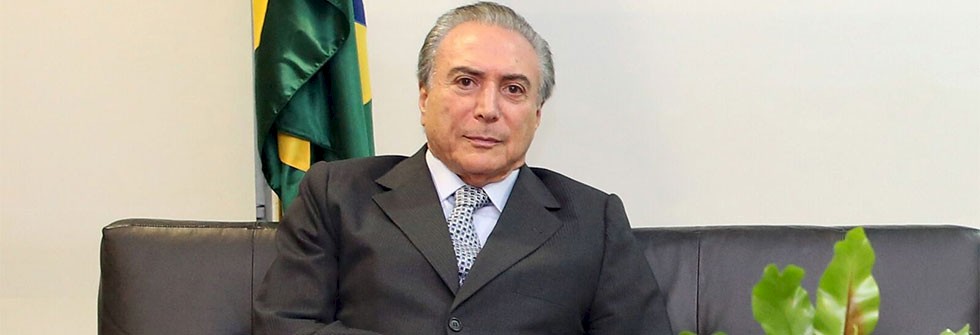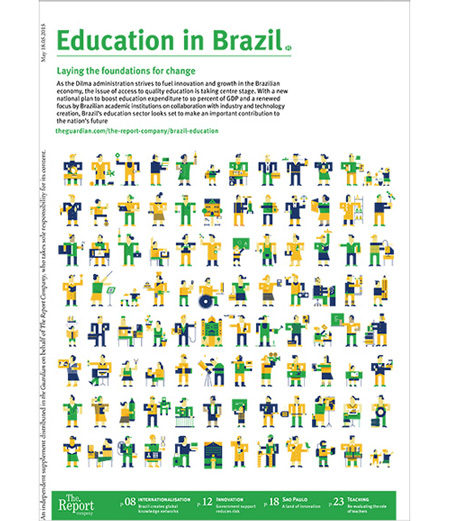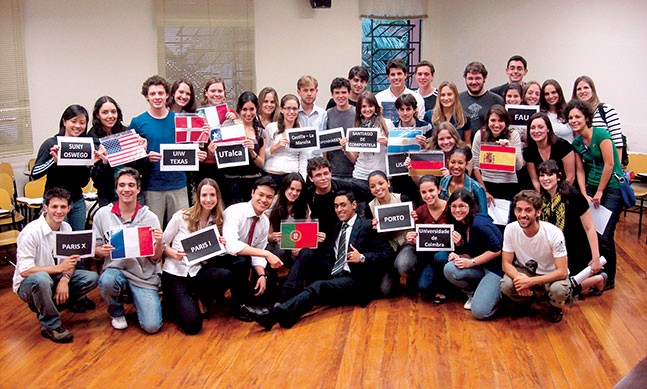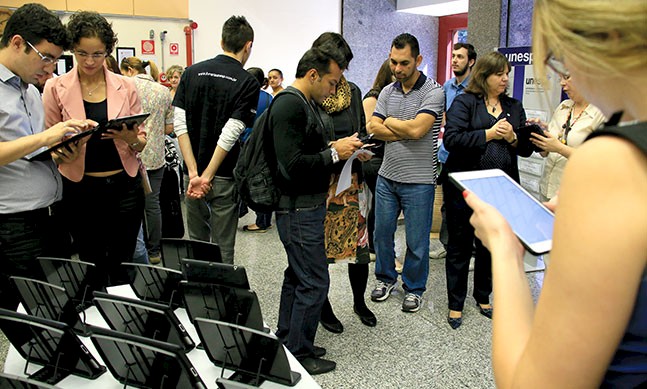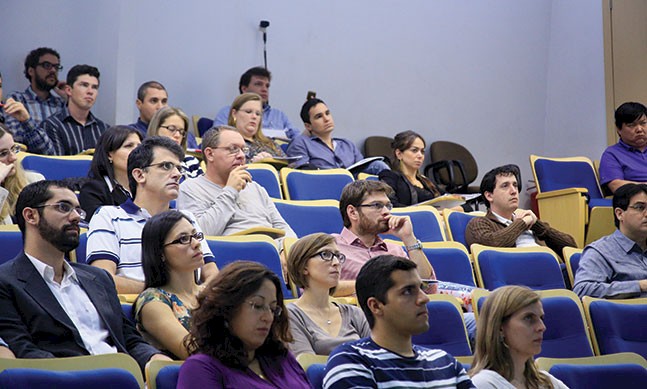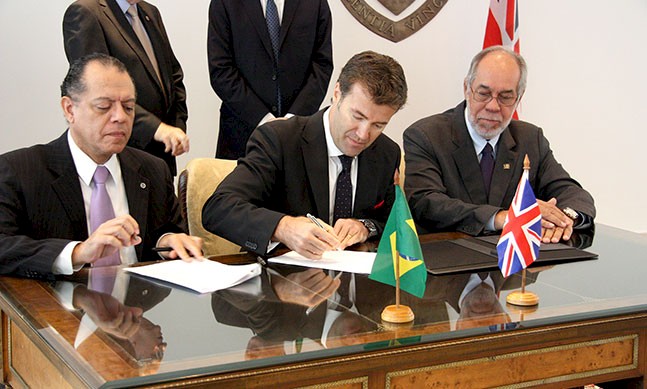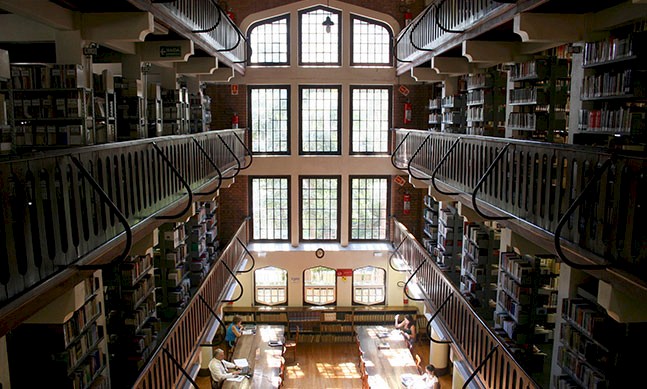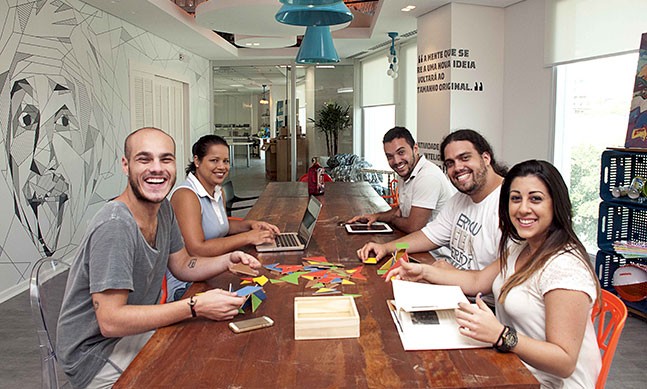Speaking to The Report Company in mid-2014, Michel Temer, who has been Dilma Rousseff’s vice-president since her election in January 2011, outlined the challenges the country’s domestic landscape presents to the administration.
The Report Company: With less than a year to go until the presidential elections, how will the government respond to the wave of demands that the population has been placing upon it since the protests began in June and what are your, and Dilma Rousseff’s, priorities?
Michel Temer: In the face of the recent protests, the president released a list of five agreements. She called upon all of the state governors to look at the issues that are essential to the country: health, safety, education, urban mobility, and so on; the latter of which had been the trigger for all the protests.
Everyone was very impressed with what took place in June. Apart from those who invaded the movement to discredit it and cause destruction on the streets, it was entirely legitimate and compatible with the country’s current democratic system. Until the 1988 constitution, when the new Brazilian state was founded, such protests were illegal. We had been under a centralising, authoritarian state for a long time, and the first realisation we need to face with these protests is that we now live under a full democracy.
As for how these protests came about, again, they are a consequence of Brazilian democracy. Also, in the last few years, Brazil has been able to add almost 40 million more people to the middle class. What happened to those people that are no longer poor but suddenly able to dream? They started protesting for efficiency in democracy. For them, freedom and social democracy were not enough any more; they needed efficiency too, not only in public services, but also in politics.
I personally believe that we understood the situation well and we had a twofold response: the agreements that I mentioned before and the proposition of a plebiscite for political reform. Thus we addressed efficiency in government and in politics. We don’t see this movement as a cause for concern; we think of it as revealing of the current period that Brazil is going through.
TRC: What do you think of the argument that the continuity of the political advances of the last decade is more important than Dilma Rousseff’s re-election?
MT: It is true that a continuous political programme moving in the same direction is fundamental for the country, but I should point out that it was our government, President Dilma’s administration, that was able to move it forward.
But it goes beyond that. We are making huge investments in the country, investing billions in roads, railways, ports and airports, and summoning international companies to associate with our own. Our president is certainly qualified to continue that process.
TRC: How do you think the elections will go?
MT: First of all, it should be said that the electoral calendar started way too early. As a rule, the elections only start being addressed in the year that they are due to take place. Legally speaking, the elections start in July 2014, months from now. The responsibility of the government is to govern well, but since the electoral calendar has started early, all government acts taken from here on are considered “electoral”, and that is not good for the country. We will start the campaign in due time. Re-election is a phenomenon that indicates whether people have approved or disapproved of this administration. We will only know that for sure next year, but I trust the people will approve another term for President Dilma.
TRC: Whenever people talk about the World Cup and the Olympics, they also talk about their legacies. During the Confederations Cup, the media focused more on the demonstrations that were taking place in the streets than the games in the stadiums. Do you think that some part of the legacy could be lost due to the protests?
MT: I don’t think so. The protests have been taking place for reasons already mentioned, but people are passionate about football and the eyes of the world are looking for that. That is why Brazil was able to attract both the World Cup and the Olympics, and they are hugely important for the country. I was in London during the closing of the Olympics, and I saw how important the event was for England. It is the same for Brazil.
“The protests were entirely legitimate and compatible with the country’s current democratic system.”Tweet This
TRC: What do you say to the suggestion of economist and governor of Pernambuco, Eduardo Campos, that the government was ‘analogue’ and out of touch with the ‘digital’ masses and there was a breakdown in communication between politicians and the people in Brazil, as highlighted by the protests?
MT: All he is doing is mirroring my initial thoughts here. Brazil went, indeed is going through, a number of processes. The first phase, after the constitution of 1988, was of the implementation of the principles of individual and public liberties. The second phase was of social ascension. The third phase will include efficiency. To continue the analogy, I think the first two periods were the analogue era. When we started operating this democracy of efficiency, we were entering the digital period.
TRC: As Brazil’s vice-president and the leading figure of the country’s largest party, PMDB, what is going to be your position next year regarding the elections?
MT: First of all, I will be playing my role of vice-president. I am originally a lawyer, so I adhere to what the constitution and the country’s laws say, and the role of the vice-president is filling in for the president whenever he or she cannot attend. During this administration, the president has delegated many tasks to me, and not only internal ones, such as the country’s borders and the relations with Congress, where I spent 24 years of my life, but also international activity.
I have been to London several times and since Brazil has the very positive label of fighting poverty, we were invited by Prime Minister David Cameron to host a joint meeting of countries where hunger remains a major issue. This represents a very important collaboration between Brazil and the United Kingdom, and I participated in the whole process. I have already visited more than twenty countries to help improve relations and exchange interests.
“The first realisation we need to face with these protests is that we now live under a full democracy.”Tweet This
TRC: The tone of the international media towards Brazil has changed somewhat recently. The Economist, for example, criticised a few of the government’s fiscal measures in particular. Do you believe that the image of Brazil has changed abroad?
MT: Such comments are a two-way street. Evidently, when Europe gets into trouble, Brazil is concerned as well. Even Brazilians who live abroad end up wanting to return home. Criticism is very useful because it warns people both here and abroad of possible problems we may have in the future, and although I think the tone may change from time to time, it is generally corrected in the long term.
For a long time this year, for example, the media shouted that Brazil’s inflation was out of control and could reach as high as 20-30 percent a year. Well, here we are nearing the end of 2013 and the inflation rate is under control. Not only will it not go above the established ceiling, it may even be lower than last year. But criticism is always welcome because it motivates us to do more and better.
TRC: You believe, then, that Brazil is still capable of seducing investors?
MT: That is what we are working towards. In some of the trips that I made, I did notice that the tone had changed, but now it already seems to have changed back again. It’s natural; it isn’t something that we should be concerned about.
Contrary to some people’s worries, there is not only total legal certainty in the country for contracts and investments, but also an extraordinary institutional stability. Throughout its history, Brazil has experienced great institutional instability, when every 25 years there was an institutional crisis in the republic. There is no crisis today.
People use the word indiscriminately, but I make very important distinctions between administrative, economic, political and institutional crises, the latter of which is the most serious. Currently, there is no administrative crisis; after all, we can change ministers and the government continues. There is also no economic crisis and unemployment is at a record low. As for an institutional crisis, which would mean a change in institutions, there is absolutely no possibility of that.
TRC: One of the criticisms made by the international media was that Brazil promised more than it could deliver. Ambition is good, but isn’t there always the risk of promising too much?
MT: That is a question about the difference between making a promise and having the capacity to execute it. I would start with the promises. Many pacts were made, but concrete measures were also taken. Take healthcare, for instance. Congress is establishing a mandatory budget that the government needs to implement and if it cannot be fulfilled, the executive branch needs to put out a message explaining why, at that point, the budget could not be implemented. We have decided that 75 percent and 25 percent of the royalties from pre-salt oil and gas go to education and healthcare respectively. This is both the promise and the execution.
There is another example in the field of education. I recently took part in a meeting in Sao Paulo in which a diploma was handed to the one millionth graduate of FIES, the system which allows people to go to college and only start paying once they have finished, over a 15-year term. Furthermore, if the student becomes a public servant, he or she is relieved of that debt.
As to the investments in infrastructure, we made a promise and we are investing. I believe that implementation has followed promises in Brazil recently. Implementation may occasionally falter in one aspect or another, but that does not mean that the promise was not kept.
TRC: You have had a lot of involvement in bringing the Expo 2020 to Sao Paulo, too. What are your expectations for the event?
MT: We hope that Sao Paulo can host Expo 2020. The main theme of the event is diversity, and no other country and city houses more cultural, ethnic and religious diversity than Brazil and Sao Paulo. It will be very useful to create a parallel between what the city is and the theme established for the event.
“We don’t see this movement as a cause for concern; we think of it as revealing of the current period that Brazil is going through.”Tweet This


